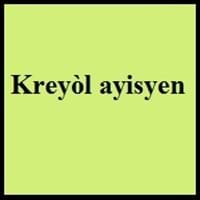Haitian Creole vs Cebuano
- In the year 1940, the first technical orthography for Haitian Creole was developed.
- In Haiian Creole, the word 'creole' is of Latin origin via a Portuguese term that means, "person raised in one's house".
- About one-fifth of the population of the philippines speak cebuano and are second largest ethnolinguistic group in the country.
- Cebuano contains many words of Spanish origin.
Haitian Creole and Cebuano Language History
Comparison of Haitian Creole vs Cebuano language history gives us differences between origin of Haitian Creole and Cebuano language. History of Haitian Creole language states that this language originated in 17th Century whereas history of Cebuano language states that this language originated in 16th century. Family of the language also forms a part of history of that language. More on language families of these languages can be found out on Haitian Creole and Cebuano Language History.
Haitian Creole and Cebuano Greetings
People around the world use different languages to interact with each other. Even if we cannot communicate fluently in any language, it will always be beneficial to know about some of the common greetings or phrases from that language. This is where Haitian Creole and Cebuano greetings helps you to understand basic phrases in Haitian Creole and Cebuano language. Haitian Creole word for "Hello" is Bonjou or Cebuano word for "Thank You" is Salamat. Find more of such common Haitian Creole Greetings and Cebuano Greetings. These greetings will help you to be more confident when conversing with natives that speak these languages.
Haitian Creole vs Cebuano Difficulty
The Haitian Creole vs Cebuano difficulty level basically depends on the number of Haitian Creole Alphabets and Cebuano Alphabets. Also the number of vowels and consonants in the language plays an important role in deciding the difficulty level of that language. The important points to be considered when we compare Haitian Creole and Cebuano are the origin, speaking countries, language family, different greetings, speaking population of these languages. Want to know in Haitian Creole and Cebuano, which language is harder to learn? Time required to learn Haitian Creole is 24 weeks while to learn Cebuano time required is 3 weeks.





